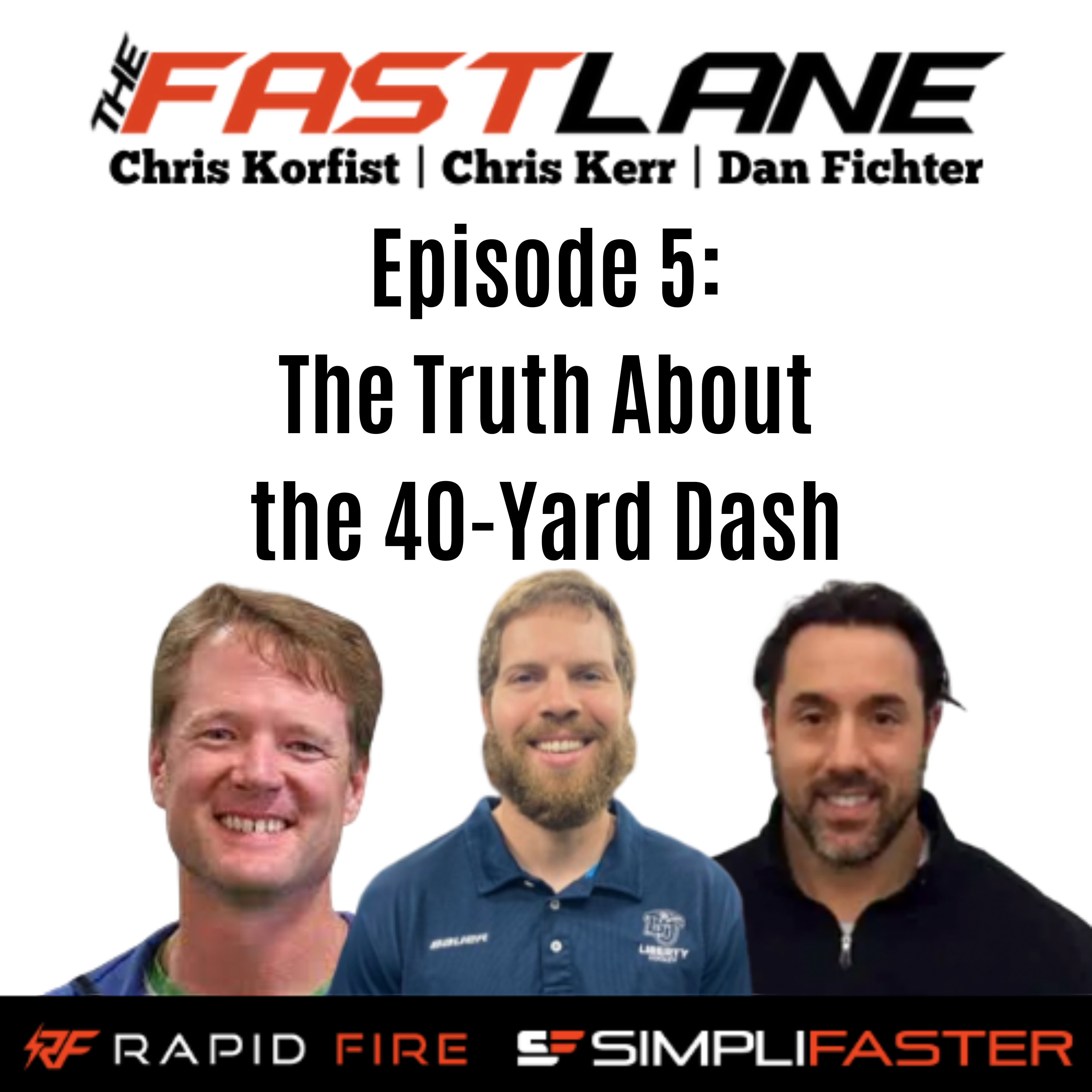Rapid Fire

Rapid Fire
Podcast Description
Rapid Fire by SimpliFaster is a fast-paced podcast delivering elite sports performance insights in just 10-20 minutes. Hosted by Justin Ochoa, each episode features top coaches and experts across all levels—private, high school, college, and pro—answering questions on strength & conditioning, speed development and athletic performance.
No fluff, just quick, actionable takeawaysto help coaches and athletes stay ahead of the game.
Short. Sharp. Science-backed. Because in performance, every second counts.
Follow for weekly episodes and stay ahead of the game! #RapidFire #Si
Podcast Insights
Content Themes
The show focuses on sports performance, strength & conditioning, and speed development, with episodes covering topics such as maximizing training data in high school settings, smart recovery strategies for college athletes, and the evolving coaching dynamics in basketball.

Rapid Fire by SimpliFaster is a fast-paced podcast delivering elite sports performance insights in just 10-20 minutes. Hosted by Justin Ochoa, each episode features top coaches and experts across all levels—private, high school, college, and pro—answering questions on strength & conditioning, speed development and athletic performance.
No fluff, just quick, actionable takeawaysto help coaches and athletes stay ahead of the game.
Short. Sharp. Science-backed. Because in performance, every second counts.
Follow for weekly episodes and stay ahead of the game! #RapidFire #Si
Episode Overview
The 40-yard dash may be the most talked-about sprint in American sports — and the most misunderstood.
In this episode of The Fast Lane, Chris Kerr sits down with Dan Fichter and Chris Korfist to break down what truly determines elite 40-yard dash performance, why most “4.4s” aren’t real, and how force, projection, limb velocity, and nervous system readiness dictate speed far more than traditional weight-room metrics.
This conversation blends biomechanics, applied physics, neurology, and coaching reality, offering a no-nonsense look at what actually transfers to faster sprint times.
Key Topics Covered
Why Most Athletes Can’t Run a Real 4.4
Why a 24” vertical jump or 11.5s 100m automatically disqualifies a true 4.4
The difference between coach-timed, combine-timed, and true electronic times
Why elite speed “looks different” the moment you see it
The Start Is Everything
Why horizontal projection matters more than raw strength
How poor shin angles act as a brake before the sprint even begins
Why “crowding the line” kills acceleration
Ideal first-step projection distance
Force, Power & Body Weight Explained (Simply)
Force per body weight as the real limiter of acceleration
Why elite starters cluster around ~8 N/kg
How watts per kilogram explain why lighter athletes separate later
Neurology, Falling & Speed Permission
Speed as a permission granted by the brain
Why falling is a trainable skill
How vestibular input, tendon stiffness, and threat perception affect sprinting
Why kids who fell more growing up often end up faster
Foot, Ankle & Heel Mechanics
Why plantarflexion is non-negotiable for acceleration
What a “floating heel” tells you instantly
How foot stiffness influences shin angles and projection
Why weak feet sabotage otherwise strong athletes
Weight Room Reality Check
Why squats and power cleans don’t guarantee speed
When more force actually makes athletes slower
Why positioning > load
How bodyweight manipulation changes force-velocity profiles
Technology & Measurement
How the 1080 Sprint changes how coaches understand speed
Why time splits reveal more than full 40s
Fly-10 and Fly-20 benchmarks that actually matter
Why video + timing beats guesswork
Episode Timeline Highlights
0:00–10:00 – Quick-style reps, rebounds, and extreme isometrics
10:00–25:00 – The myth of the 4.4 & combine timing realities
25:00–40:00 – Force, projection, and limb velocity explained
40:00–55:00 – Neurology, falling, and vestibular training
55:00–70:00 – Indoor training solutions & first-step development
Key Coaching Takeaways
The 40-yard dash is won before the first foot hits the ground
Projection without limb speed creates early braking
Athletes don’t need more force — they need better force application
Speed training without neurology is incomplete
If your athlete can’t fall safely, they can’t accelerate aggressively

Disclaimer
This podcast’s information is provided for general reference and was obtained from publicly accessible sources. The Podcast Collaborative neither produces nor verifies the content, accuracy, or suitability of this podcast. Views and opinions belong solely to the podcast creators and guests.
For a complete disclaimer, please see our Full Disclaimer on the archive page. The Podcast Collaborative bears no responsibility for the podcast’s themes, language, or overall content. Listener discretion is advised. Read our Terms of Use and Privacy Policy for more details.